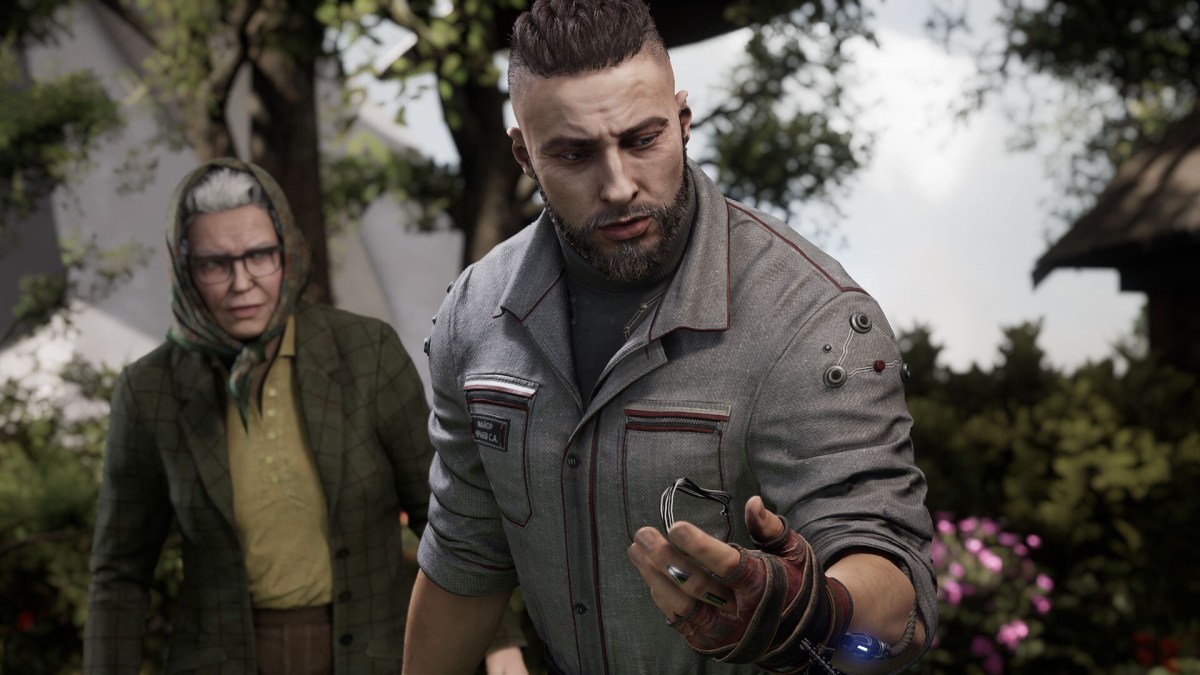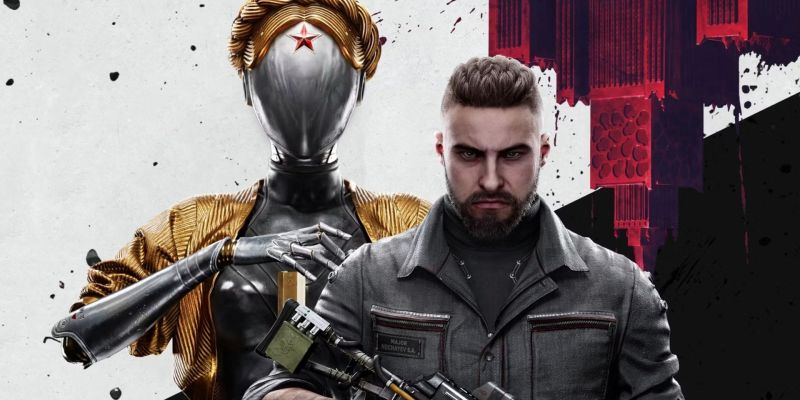I wonder what Vyacheslav Molotov, a key and unusually constant presence through nearly two decades of early Soviet government, would have made of his inclusion in Atomic Heart‘s alternate history. Would he wonder whether he was still responsible for signing off Stalin’s ruthless purges? Would he find it controversial to hear himself complain about Western sanctions against the USSR so close to the anniversary of Russia’s invasion of Ukraine? Or would he just want to fuck the horny vending machine?
Despite its occasional sojourns into freshman political theory – everyone will be equal under Atomic Heart’s new version of communism, you see, but “some will be more equal than others” (an actual quote from the game, I’m afraid) – horny vending machines represent the intellectual level Atomic Heart is most comfortable with. The world-building hinted at in the BioShock Infinite-like opening, at times incredible socialist realist architecture and design, and effective (if too frequent) use of Soviet pop culture mainstays, like Nu Pogodi!, Diamond Arm, and Alla Pugacheva, are all drowned in a sea of verbal diarrhea.

Sometimes it’s an exhaustive exposition of the game’s pulp sci-fi plot about robots gone rogue and political intrigue. At other times it’s an elaborate and completely inconsequential explanation of how the made-up science for the various devices and gadgets works. But mostly it’s an endless barrage of extreme profanities, innuendos, and loutish banter directed at anything from the threat of immediate death to the protagonist’s AI-powered glove. If 2022 was the year of overly chatty protagonists, it seems 2023 is the year they are joined by overly chatty items of clothing.
If you were fooled into thinking that this might be a kind of Soviet BioShock, consider that “fuck” functions in Atomic Heart much like “would you kindly” did in BioShock. “Fuck” is the narrative lynchpin, the character-building device, the humorous through-line, and the background lore. It is more or less the full emotional range of the game’s protagonist, Major Nechaev, a loud brute with the latest haircut and facial hair that feels as out of place in this version of 1950s USSR as it would have done in the real thing. Baba Zina, Atomic Heart’s answer to Helen Mirren’s character in Red, might have a jet-powered izba, but it’s got nothing on Nechaev’s skin fade.
The ceaseless swearing and shouting obscure Atomic Heart’s serviceable gameplay. Melee feels a little floaty, but there is a creative variety of weapons complemented by a decent mix of BioShock-like abilities. Crafting, upgrading, and inventory management are overwrought and largely unnecessary, but they offer occasionally interesting variations to combat, like temporary modifiers that add freezing or burning effects.
A few of Atomic Heart‘s small open-world sections are reminiscent of Far Cry 2, both in the choice of ramshackle vehicles to drive and the frustratingly respawning enemies. Enemy variety borrows from Wolfenstein and Serious Sam. The platforming and puzzle sections have a little of Dishonored about them, even if they pale next to that series’s level design. And the polymer – a kind of floating goo that allows for additional traversal – recalls the anomalies from Stalker.
Atomic Heart is a mess of influences, in other words, but one that could just about work if it were held together by strong writing, or even if it could simply learn to shut up. Unfortunately, verbal diarrhea doesn’t make for a solid foundation. To borrow a Russian idiom equal to Nechaev’s vernacular, it’s a foundation made of shit and wooden sticks.
